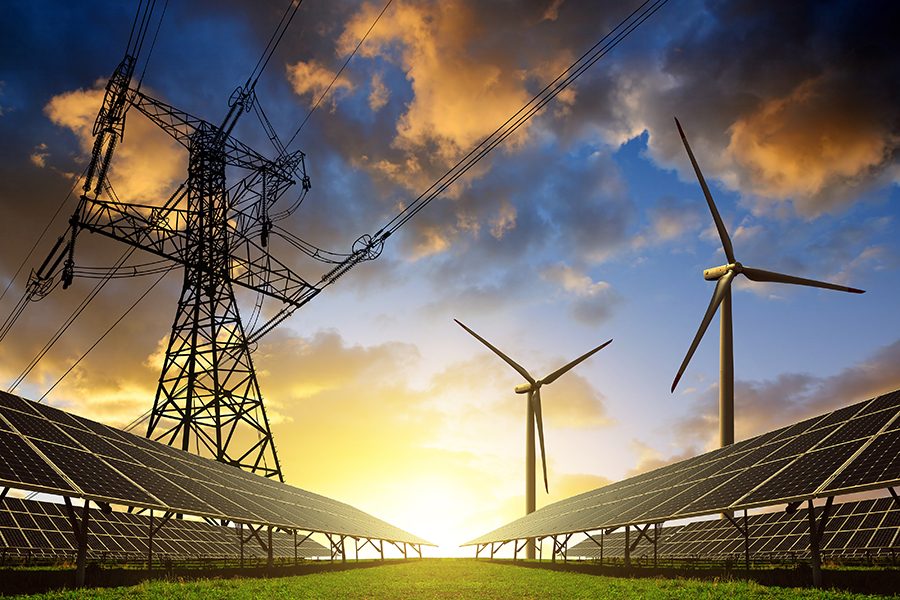
Home » Energy Briefs – December 2023
Energy Briefs – December 2023

December 14, 2023
Benton REA rates to increase 8% on March 1
Benton REA will charge members 8% more for electric service among all rate classes beginning March 1.
The electric cooperative announced the plan in its December edition of the Ruralite magazine, noting it has avoided increases for eight years.
Benton REA said inflation is to blame, citing significant cost increases for materials, equipment and fuel required to deliver electricity to members. It said a standard residential transformer cost $1,191 seven years ago and now costs $3,416, a 187% increase.
Much of the rate increase will be included in the fixed base charge.
An outside consultant conducted a “cost of service analysis” to ensure the rate adjustments were appropriate.
Details about the new rate structure for each specific rate class are still being determined, and Benton REA plans to hold in-person and virtual public meetings to provide members with information about the rates and to ask questions.
Tri-City leaders explore clean energy during Australia trade mission
Gov. Jay Inslee and a 60-member delegation from Washington recently returned from a trade and study mission to Australia focused on clean energy.
The delegation included leaders from the new Institute for Northwest Energy Futures at Washington State University Tri-Cities and Pacific Northwest National Laboratory.
The governor’s office noted that Australia embraces healthy, clean energy in the form of renewable energy generation, hydrogen-powered industry and advanced climate policies.
The delegation traveled to Australia in November.
State to restrict refrigerants linked to global warming
State regulations are banning the sales of new air conditioners and commercial refrigeration units that contain hydrofluorocarbons.
Hydrofluorocarbons, or HFCs, are a group of chemicals used in refrigeration and other applications that can have thousands of times more global warming impact than carbon dioxide, the state Department of Ecology said in a release.
Washington wants to reduce the use of these chemicals, and new rules adopted by the Department of Ecology will prohibit manufacturers from using certain HFCs in new air conditioners (including heat pumps) and commercial refrigeration equipment sold in Washington.
The new rules also will establish a refrigerant management program with registration, leak inspection, leak repair, recordkeeping and reporting requirements for owners or operators of large stationary refrigeration and air conditioning systems. The program takes effect Jan. 1.
HFCs are the fastest-growing category of greenhouse gas emissions in the world, and account for at least 4% of statewide greenhouse gas emissions in Washington, the state said.
The state Legislature passed the HFC law in 2021, requiring manufacturers to use safer refrigerants and prevent the accidental release of HFCs from existing equipment. The state law complements federal EPA requirements to transition to more environmentally friendly refrigerants.
BIAW denounces natural gas restrictions on new construction
The Building Industry Association of Washington (BIAW) is blasting the state Building Code Council’s plan that calls for restricting the use of natural gas in new construction projects, calling it an “assault on energy security and a violation of federal law.”
Natural gas plays a significant role in providing affordable energy for heating, cooking and powering various appliances that are essential to the quality of life for thousands in Washington, with roughly a third of the households in the state relying on natural gas to heat their homes, BIAW said.
“Removing natural gas as an affordable energy source in new homes will add strain to Washington’s power grid, making power outages even worse for new homeowners without a back-up heat source,” said Greg Lane, executive vice president of BIAW, in a statement.
BIAW, which calls for a more flexible and affordable approach to the codes, filed a lawsuit against the state in February challenging the plan. The new rules are set to take effect March 15.
PNNL compiles battery energy storage system resources
As the move toward clean energy ramps up, Pacific Northwest National Laboratory has compiled resources to help communities learn about battery energy storage systems, or BESS, a relatively new kind of energy infrastructure.
Many communities don’t understand the safety, zoning and community outreach needed as the systems are installed in neighborhoods, the lab wrote in a statement. But the new report, “Energy Storage in Local Zoning Ordinances,” is designed to help by defining potential community impacts and real-world examples of how other communities have responded.
Go to: shorturl.at/ADKN1.
Latest News



